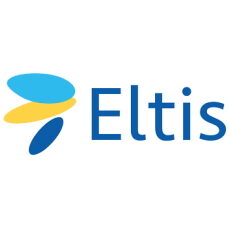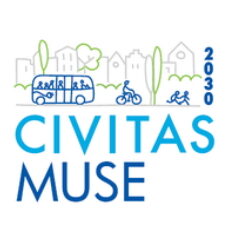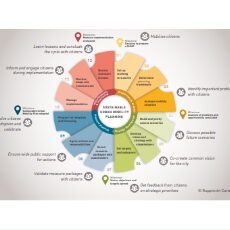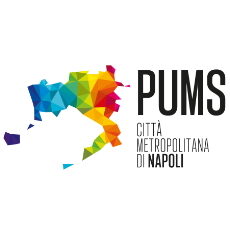- All
- African projects
- assessment
- assessment selected projects
- Assessment selected projects 2
- Assessment selected projects 3
- Assessment selected projects 4
- ASTRA
- Cost Benefit Analysis
- Electric mobility and ITS
- MOMOS
- planning
- planning selected projects
- planning selected projects 2
- planning selected projects 3
- planning selected projects 4
- planning selected projects 5
- projects
- Railways projects
- research
- research selected projects
- research selected projects 2
- research selected projects 3
- studies
- studies selected projects 1
- studies selected projects 2
- studies selected projects 3
- studies selected projects 4
- studies selected projects 5
- TRTingegneria
- TRUST
- urban mobility
- Update of the study on the “Costs and Benefits of the Urban Mobility Transition” The Costs and Benefits of the sustainable urban mobility transition study was carried in 2021 by TRT with the purpose of assessing the impacts of different sustainable urban mobility scenarios in European cities while quantifying the costs and benefits of this transition in 2030 and 2050. The current study consists in an update and improvement of the previous analysis, aiming to: Refine the input data, the intervention levels and targets of the policy measures of the transition scenarios and their timeline of implementation. Improve and enlarge the policy measures applied to the scenarios Run a new modelling simulation to quantify the expected costs and benefits of the sustainable urban mobility transition in European cities by 2030 and by 2050. Draft specific policy recommendations for practitioners. Provide a set of relevant datasets for the development of an interactive tool The calculation is based on an improvement and extension of the MOMOS model, which allows to assess the impacts of different mobility transition scenarios. The quantification of results is applied to 12 city prototypes (representing more than 780 cities in EU27), considering different dimensions (small, medium, and large cities) and geographic areas (southern, central/western, northern, and eastern Europe). The project will consider three potential scenarios, based on a combination of policy measures taken from key EU initiatives and related to the specific emphasis of each scenario. The available measures are of a different nature and comprehensively cover the range of options that cities currently have available to promote the transition to sustainable urban mobility, belonging to eight different policy groups: Shared Mobility; Innovative mobility services; Vehicle fleet & Charging Infrastructure; Transport Infrastructure; Transport avoidance and behaviour; Pricing Schemes; Traffic management and control; urban logistics. The outputs of the study will consist in a series of indicators from three domains, estimated at base year 2022 as well as at future years 2030 and 2050: transport (modal split, car ownership), environment (CO2 and air pollutant emissions, fatalities), and economic (city costs, revenues, user and freight operator costs, and externalities). Also, building on the results for the 12 city prototypes and on a policy effectiveness comparison of the different groups of policy measures, a series of recommendations focused on mobility practitioners will be provided. For more information: Previous contract
- CO-design of e-commerce last-mile DElivery and return options with ZERO emissions CodeZERO is a Horizon Europe research project coordinated by TRT whose objective is to investigate and develop innovative and sustainable zero-emission solutions for last-mile e-commerce deliveries and return options by integrating the perspectives of all various stakeholders. In addressing the question of more sustainable delivery solutions, CodeZERO will not only embrace the reduction of greenhouse gas and pollutants’ emissions from e-commerce deliveries but will also focus on other types of negative impacts such as those on safety, occupancy of public space as well as on delivery costs and working conditions of transport companies’ employees. Attention will be also given to understanding how alternative sustainable solutions might promote diversity, equality, and inclusion and integrate them within the EU transport sector. CodeZERO adopts an interdisciplinary approach combining both desk and field research as well as quantitative and qualitative analysis, following four phases: Analysis phase: understand current delivery options, stakeholder needs and constraints, and environmental impacts; Design phase: Develop consumer awareness campaigns, mechanisms to encourage sustainable choices, and a range of sustainable delivery/return options. Additionally, create a toolset for local authorities to accelerate adoption; Test phase: Pilot test the designed solutions and awareness guidelines in four European cities: Milan (IT), Utrecht (NL), Antwerp (BE), and Oslo (NO); Consolidation phase: Refine communication guidelines and delivery/return options based on pilot data. Develop an interactive tool for stakeholders to analyse the impact of adopting CodeZERO solutions
- Contribution to the EU Urban Mobility Observatory, ex-ELTIS, facilitating the exchange of information, knowledge and experience in the field of sustainable urban mobility The EU Urban Mobility Observatory, previously known as ELTIS, was created more than 25 years ago, and it is now Europe’s main source of information on urban mobility. The Observatory, financed by the European Commission’s Directorate General for Mobility and Transport, facilitates the exchange of information, knowledge and experience in the field of sustainable urban mobility. It addresses individuals working in transport as well as in related disciplines, including urban and regional development, health, energy and environmental sciences. TRT collaborates with the EU Urban Mobility Observatory since 2017. The current contract, covering years 2024 and 2025, foresees for TRT to carry on the following activities: collection of regular updates and lessons learned from existing EU- funded urban mobility projects covering several EU funding programmes and initiatives with the objective to pinpoint valuable contributions and enhanced insights to enrich the EU Urban Mobility Observatory. Special emphasis is placed on key topics of interest within the thematic domains of all six EGUM sub-groups. Update and further develop the portal, developing new contents such as news in the field of urban mobility and case studies across Europe Provide administrative support to the EGUM sub-groups, particularly on “Urban Vehicle Access Regulations (UVARs)” and “Active Mobility and safety of vulnerable road users” Support on the follow-up on the Commission Recommendation on national SUMP support programmes Support on updating the SUMP Guidelines and quality review of SUMP reference materials For more information: Previous contact ELTIS + SUMI – 2022 – 2023 Previous contract ELTIS – 2017 – 2021
- CIVITAS MUSE – Coordination and Support Action for the CIVITAS Initiative The scope of CIVITAS MUSE is to support the CIVITAS community to increase its impact on urban mobility policy making and advance it to a higher level of knowledge, exchange, impact and sustainability, while guaranteeing essential high-quality support. Their main objectives include: to act as a destination for knowledge developed by the CIVITAS Community over the past twenty years To expand and strengthen relationships between cities and stakeholders at all levels To support the enrichment of the wider urban mobility community by providing learning opportunities To represent CIVITAS on the international stage TRT is responsible of the activities related to projects monitoring and evaluation, as well as for the development of policy recommendations. More specifically, the key objectives of TRT work are: Monitor results and implementation activities across CIVITAS and urban mobility projects with reference to what is new and emerging from the CIVITAS Community on urban mobility innovations and policy making. Enhance, consolidate, and bring to the next level the substantial body of knowledge that has and is continuously being produced by urban mobility projects, to improve its accessibility to practitioners. Provide a common realistic, user-friendly and effective evaluation framework as the reference point for mobility measures and concepts, supporting projects in its implementation to harmonise evaluation activities. Provide focused policy support to the CIVITAS Community, informed by Policy Groups contributing to Green Deal objectives, elaborating policy building blocks and content for MUSE learning and communications. For more information, check the previous Coordination and Support Action for the CIVITAS Initiative, CIVITAS Elevate
- Modelling European cities’ pathways to zero-emission urban mobility by 2030 through the development of potential transition scenarios This study modelled European cities’ pathways to zero-emission urban mobility by 2030 through the development of potential transition scenarios. Each scenario is built on different set of sustainable policy measures, whose impacts is quantified through a series of indicators as output results. The assessment is realized through MOMOS a quantitative tool which allows to simulate and quantify in a simplified way the impacts of potential mobility transition scenarios in cities. Four potential scenarios, each one with a different focus and a specific combination of policy measures, have been simulated and applied to five real European cities: Brussels, Madrid, Milan, Greater Manchester, and Warsaw. An in-depth data collection defined and reproduced the city characteristics at the base year, including socio-demographic aspects as well as mobility features. The main output of the study consisted in the calculation of the CO2 emissions reduction associated to each scenario. Besides that, a series of core indicators have also been calculated for the 2030 horizon. These included: modal split, public and private fleet electrification, car ownership, road safety, and air pollutants emissions. In addition, multi-criteria cost effectiveness analysis estimated costs and benefits associated to the four transition scenarios. Such analysis was based on four components: (implementation and maintenance) costs of the policy measures, environmental benefits, users’ transport costs and travel time, and revenues for the public administration and service providers. For more information: Clean cities website on the (E)Mission zero study, including technical reports and factsheet results. Briefing of the (E)Mission zero study Interactive tool to explore results of the (E)Mission zero study
- Formazione e Capacity Building per i Piani di Mobilità Urbana Sostenibile (PUMS) nei Paesi dell’UE TRT, supported by a consortium of six companies (DTV Consultants, TREDIT, TIS, Stratec, Goudappel, and Eurocities), has been appointed by the European Investment Bank (EIB) to provide SUMP Training and Capacity Building activities in multiple EU countries The primary goal of the project is to enhance the expertise of urban and regional transport planners, as well as newcomers, focusing on Sustainable Urban Mobility Plans (SUMPs) and offering centralized support for their implementation at the local and regional levels. The project entails a comprehensive program encompassing almost 30 training sessions and workshops in less than 2 years, covering SUMPs, National SUMP Support Programmes (NSSP), and Urban Mobility Indicators (UMI) monitoring and reporting mechanisms. The project aims to improve the technical and policy expertise of urban transport planners regarding SUMPs and facilitate their implementation at city or regional levels. It targets local training for TEN-T urban nodes, Cities Mission cities, and small/medium-sized EU cities, alongside capacity-building workshops to assist in establishing NSSPs at the national/regional levels. This initiative is crucial for implementing the Commission Recommendation on NSSPs, bridging capacity gaps in smaller cities, and ensuring national engagement and support. Aligned with the New EU Urban Mobility Framework, the training sessions focus on various SUMP aspects, including governance, legislation, funding, monitoring, evaluation, guidelines, methodology, education, and knowledge exchange through NSSPs. The training approach blends fundamental SUMP knowledge with the latest mobility, technology, and societal developments. The ultimate goal of the project is to strengthen SUMP implementation and governance across Europe by addressing key aspects of modern mobility planning, including monitoring tools, legal frameworks, and financial commitment, while tailoring activities based on Member States’ specific needs and interests. The SUMP training and NSSP workshops are delivered by 4 key experts: Tom Rye, Christiaan Kwantes, Kristina Gaučė, and Aljaž Plevnik. In addition, they are supported by a pool of Non-Key Experts with a vast experience in the different fields of the urban mobility domain. The SUMP trainings cover a wide range of topics: CORE MODULES Basics of SUMP methodology and practice The link between Strategic Plans, Programming, Pipeline and project preparation Urban nodes and the interface between local and strategic transport ELECTIVE MODULES Organisational and institutional aspects Multimodal plan scenario building in SUMPs Indicators, targets and monitoring Citizen/Stakeholder engagement and communication SUMPs for small and medium-sized cities Demand and Accessibility analysis through the SUMP Transport decarbonisation Environmental aspects Climate change adaptation and resilience Collective passenger transport Active modes and micromobility Freight and logistics Demand management Spatial planning Road safety and street design Inclusive and accessible mobility The NSSP workshops encompass several aspects, including the introduction of NSSP concepts, EC guidance, guest speakers, Q&A sessions, breakout group discussions, systemic barriers, national legislations, SUMP financial support, National SUMP platforms, SUMP guidance, and monitoring and evaluation at the national level. The first phase of the project lasted from September 2024 and was completed in June 2025, which saw the organisation of 12 training […]
- Sustainable Urban Mobility Plan and Urban Plan for Cycling Mobility of the Metropolitan City of Naples The Metropolitan City of Naples has commissioned the temporary grouping of companies consisting of TRT Ingegneria (agent), Sintagma (Principal) and TPS Pro (agent) to draft the Sustainable Urban Mobility Plans (SUMP) and the related “Biciplan” (Urban Plan for Cycling Mobility). The SUMP is draft in accordance with the guidelines issued by the former MIT today MIMS. Launched in September 2021, the drafting of the SUMP involves several phases: Definition of the “territorial knowledge framework”; Definition of Plan targets and objectives; Definition of policies, strategies and actions; Construction of scenarios and definition of the Plan Proposal; VAS and VIA (strategic and impact – environmental assessments). Along the drafting, the participatory process plays a fundamental role in all the activities underpinning the SUMP according to its own Participation and Communication Plan. TRT contribution in the SUMP drafting includes – in addition to participation along the entire process of the Plan elaboration – the drafting of the Biciplan and two thematic studies: freight transport and urban logistics and transport of people with reduced mobility. The Urban Plan of Cycling Mobility (Biciplan) promotes the use of bicycles as a mode of transport for daily, touristic and recreational activities, improving the safety of cyclists. The Biciplan identifies the strategic metropolitan network with itineraries that connect, in synergy with public transport, the urban centres as well as main attraction and intermodal poles. Sustainable urban freight transport and logistics address the rationalization of freight transport on a metropolitan scale cutting negative impacts and externalities linked with the distribution and the transportation of goods in urban areas. Transport of people with reduced mobility analyses measures to ensure maximum accessibility, autonomy and ease of travel through universally accessible means by removing architectural and virtual barriers. The fundamental objective is the definition of coordinated actions concerning the structure of services, accessibility to transport infrastructures (railway and underground service stations, interchange parking lots, ports, airports, etc.) and the increased participation of people with reduced mobility to public spaces. For more information (only available in italian) Documenti consultabili sul sito del PUMS di Città Metropolitana di Napoli News (only available in italian) Napoli: Borrelli incontra progettisti del PUMS. Tra i temi il tram veloce per la zona Nord, 13 maggio 2022
- European Urban Mobility Observatory and support (ELTIS) and Urban Mobility Scoreboard (SUMI – Sustainable Urban Mobility Indicators) ELTIS, the European Urban Mobility Observatory, is a long-standing web portal (eltis.org), which has facilitated the exchange of information and best practice in the field of urban mobility in Europe for over 20 years. Financed by DG MOVE, ELTIS has expanded its remit over time, evolving from an information repository, to become the EU’s Urban Mobility Observatory. As such, ELTIS now provides a broad range of essential services (e.g. training and support tools) and became a one-stop shop for sustainable urban mobility plan (SUMP) guidance, following the integration of the European Platform on SUMPs into a new portal hosted on the European Commission website (Urban Mobility Observatory). To support the use of the SUMP guidance material available on ELTIS, the SUMI (Sustainable Urban Mobility Indicators) project aimed at developing a set of indicators to enable cities to identify deficiency areas and enhance alignment with EU policy goals. The ultimate goal has been the definition of indicators covering the seven indicator areas mentioned in the draft amended TEN-T Regulation, together with the development, implementation, and analysis of responses to a European-wide urban mobility data and indicators survey of cities proposed to be ‘urban nodes’ in the draft TEN-T Regulation. This project extends the legacy of the ELTIS portal, managed for the period 2022-2023, and updates and enhances SUMI to support the amendment of TEN-T Regulation. After having been already involved in both the previous ELTIS (2017-2021) and SUMI (2018-2020) projects, TRT has been awarded for the combined ELTIS-SUMI 2 project, as part of an international consortium led by Ricardo (UK), with Rupprecht Consult (DE), POLIS (BE), ECORYS (ML), TEPR (UK), Vision5 (AT), UITP (BE), TML (BE) and Marlon (BE). TRT contributes to the project as it comes to: publishing news items and case studies on the ELTIS Portal, and drafting new SUMP Topic Guides / Practitioner briefings, to facilitate the continued dissemination of best practice information to urban mobility professionals across Europe, chairing and organising meetings of the EU SUMP Platform Coordinating Group, bringing together representatives of the main ongoing and EU funded projects on SUMP, reviewing, updating and simplifying the set of SUMI indicators related to the indicator areas of the amended TEN-T Regulation, exploring data availability among the cities defined as urban nodes across Europe. For more information: SUMI website Previous ELTIS contract Previous SUMI contract [tw_button icon=”” link=”http://www.trt.it/en/Projects/” size=”small” rounded=”false” style=”flat” hover=”default” color=”#223468″ target=”_self”]Projects[/tw_button]
- Study on costs and benefits of the sustainable urban mobility transition The study had the objective to assess the impacts of different sustainable urban mobility transition scenarios, producing a quantitative analysis of their costs and benefits for European cities by 2030 and 2050. The calculation is based on an improvement and extension of the MOMOS model, which allows to calculate the costs and benefits of the transition through a set of indicators. To take into account differences among 779 European cities, the quantification of results has been applied to 12 city prototypes, which considered different dimensions (small, medium, and large cities) and geographic areas (southern, central/western, northern, and eastern Europe). The project considered three potential scenarios, based on a combination of policy measures taken from key EU initiatives: Promote and regulate, based on changing behaviour and promotion; Plan and build, focused on investments in technology and infrastructure; Mixed, which combines policies from the previous two scenarios. The three scenarios were built on specific combinations and applications of policy measures, belonging to six different policy groups: Shared Mobility and Demand Management; Innovative Services; Green Public Transport and Logistics Fleets & Charging Infrastructure; Pricing Schemes; Transport Infrastructure; Traffic management and control. The outputs of the study consisted in a series of indicators from three domains: transport (modal split, car ownership), environment (CO2 emissions, fatalities), and economic (city costs, revenues, and externalities). Also, a policy effectiveness comparison determined the best policy measures, in terms of associated cost/revenues and CO2 reduction, according to different city sizes. For more information: Full results of the study can be explored with this interactive tool. The study’s Full Report can be downloaded here. Additional info can also be found on the EIT Urban Mobility website For more information: New contract Interactive tool to explore results of 2021 study 2021 study’s Full Report EIT Urban Mobility website on 2021 study








